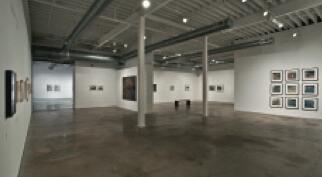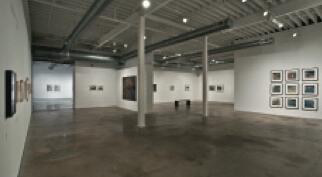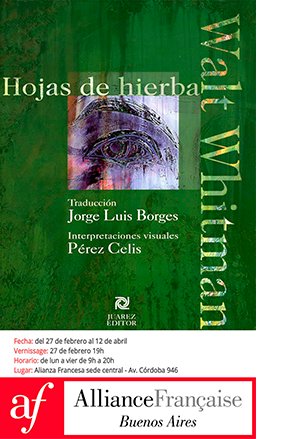Consuelo Castañeda, Nereida García-Ferraz and Ángela Valella
801 Projects, Miami
Besides being an establishment for the dissemination of art, 801 Projects is, above all, an artistic project founded in 2005 to present performative events. These are commonly developed under the format of exhibitions conceptualized and carried out by the artists who participate in them. Matinée is the most recent of these exhibitions, featuring team work by − according to the order in which they appear at the gallery − Nereida García-Ferraz, Ángela Valella and Consuelo Castañeda.

Nereida García-Ferraz presents Hands, 2010. Three drawings in graphite, which are re-elaborations of stills from El Perro Andaluz —a 1929 film by Luis Buñuel and Salvador Dalí—, are linked to a video in which the artist’s hand moves over the hand recorded in another background video, Hands Movie, 1966, originally created by Ivonne Rainer; next, Ojeando, 2010, a video that represents the hurried turning of the pages of Antonio Benítez Rojo’s book Mujer en traje de batalla, 2001, is accompanied by new drawings also based on stills, in this case from Andrei Tarkovski’s El Espejo, 1975. All of these works explore different ways in which the visual culture of the 20th century has represented the hand as a container and agent of human experiences, as well as the specific relationship of the artist with this cultural heritage. Ángela Valella’s contribution to the exhibit consists in two installations: one of them, 12,155, displayed in two stages, is composed of pages from an ancient edition of Dante Alighieri’s Divine Comedy which have been torn and each of them painted in oil in 55 seconds; the other one, Brillante pasado, consists of four operating retroprojectors showing drawings made − and remade − in real time using cutouts of acetate sheets on which currently unrecognizable images of television news had been previously printed. The first functions as a dialogue with time and with the cultural constitution of the pictorial gesture; the second, as a restructuring of history into a mise-en-scène of the construc- tive strategies of collage: ultimately, a metaphor related to the processes of artistic production and to its conceptual and emotional possibilities.
For her part, Consuelo Castañeda exhibits the project For Rent, conceived to be an integral intervention of the space and a reconsideration of the history of The Americas Society Art Gallery, New York, where it will be shown next May. Castañeda currently includes elaborate sketches, as well as some physical configurations that allude to the future exhibit, such as the evocation of a work by Gego or a lounge animated by a video. In this proposal, the archive is approached as a place that can nourish a dedramatized institutional history in which the fictionalization strategies are not concealed. Outstanding in Matinée, among other aspects, are the productive relationship between the degree of consistency of the exhibition discourse and the independence of thought and execution evinced by each individual proposal, as well as the effective approach of these to a dynamic notion of artistry.





